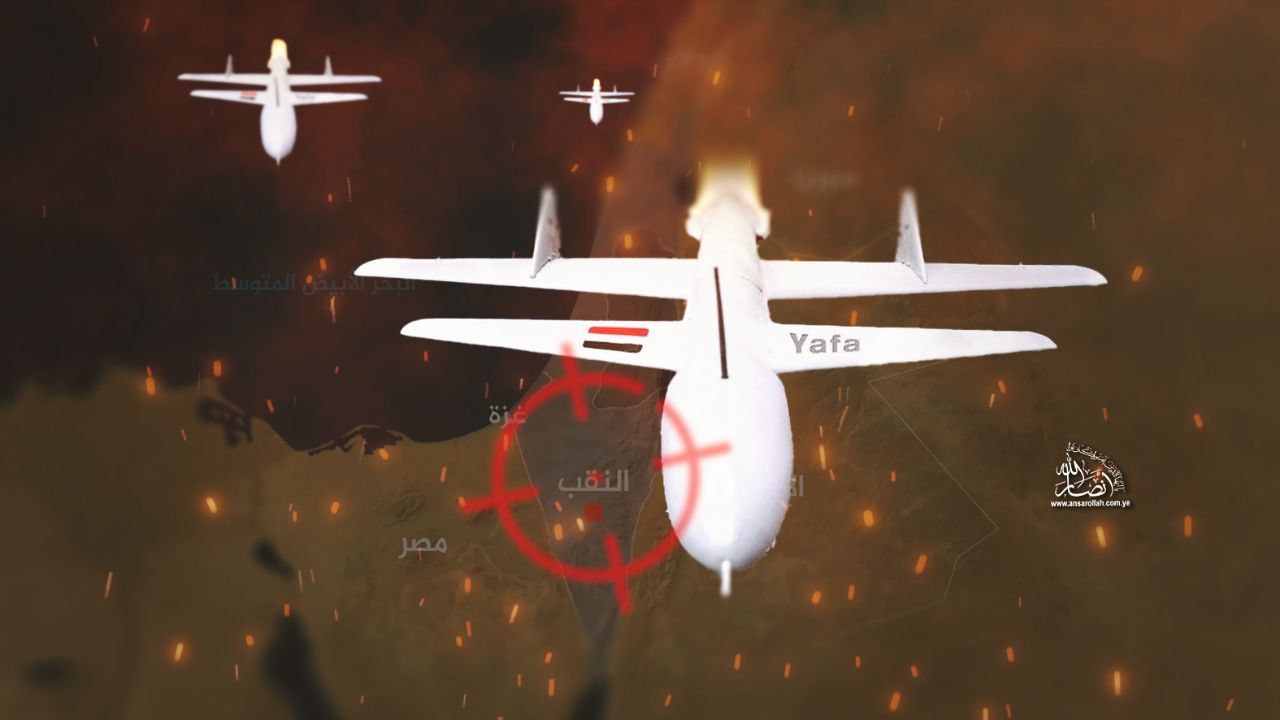Published: Muharram 22, 1447 AH
In a dramatic shift that has stunned global observers, Yemen has emerged as a formidable military force in the regional conflict, ushering in a new phase of deterrence and reshaping the rules of engagement. Through unprecedented maritime operations, Yemen has not only undermined the perceived invincibility of its adversaries but also asserted itself as a key player whose influence can no longer be dismissed.
These strategic support operations—bold, precise, and sustained—have forced global powers to reevaluate Yemen's military capabilities. The once-marginalized nation now stands as an equal adversary, compelling acknowledgment through action rather than rhetoric. As its enemies struggle to recover from repeated setbacks, Yemen’s unrelenting strikes continue to deliver painful lessons in resilience, dignity, and the enduring moral imperative to defend the oppressed.
The Zionist genocidal war on Gaza, coupled with its challenging of the free nations across the region, has proven to be a grave strategic blunder. Tel Aviv’s assumption that regional domination could be achieved through expansion and renewed hegemony has backfired dramatically. Instead, change came from an unexpected direction: Yemen.
Far from mere slogans, Yemen’s actions are rooted in deep conviction and driven by a sincere belief in divine promise. This has left enemies across the region—and particularly the Zionist entity—in a state of unease, as they watch Yemeni strikes unfold without an effective means of counteraction.
The sense of security once enjoyed by the Zionist occupation has eroded. Reports confirm that even the pride of American and European defense industries has failed to shield the occuaption from the intensifying wave of Yemeni operations. A report by the Zionists "Jewish Independent" described Yemen as a "daily nightmare" for the Israeli entity, noting that despite a distance of over 2,000 kilometers, Yemeni forces have managed to strike deep within occupied territory with increasing frequency and precision.
The launch of the al-Aqsa Flood operation and the growing strength of the resistance axis have left the Zionist enemy at a critical juncture—facing either existential collapse or an uncertain retreat, with no path back to its former dominance. Palestinian resistance has intensified, exposing the fragility of Israeli forces and raising the possibility of capturing additional soldiers.
Yemen’s qualitative military operations have further destabilized the enemy, stripping away the myth of Israeli superiority once reinforced by Western media narratives. In recent weeks, these operations—on both the Palestinian and Yemeni fronts—have convinced even the enemy’s most powerful patrons that it is entering a phase of irreversible decline.
Both the United States and its Western allies now face mounting pressure to intervene decisively before Israeli entity's collapse draws their broader strategy for Middle Eastern domination back to square one.
The July 2025 sinkings of the "Magic Seas" and "Eternity C" were turning points in the regional conflict, marking a strategic transformation in maritime engagement that has upended traditional deterrence models. These incidents have prompted a reassessment of Yemen’s rising military capabilities.
A "Daily Mail" report revealed that the Yemeni armed forces are steadily accumulating combat experience on a strategic level, leveraging drone technology and ballistic missiles with growing sophistication. The twin sinkings remain at the center of media and military analysis, not only for their tactical impact but for their broader implications.
The Red Sea engagements reflect a notable evolution in Yemen’s naval strategy since the onset of the conflict. The "Daily Mail" described this development as “the strongest transformation in the maritime rules of engagement since the beginning of the regional conflict following the Israeli assault on Gaza.”
Despite launching more than 2,000 munitions on over 1,000 Yemeni targets in recent months, Washington has failed to prevent Yemen’s steady escalation of attacks, especially at sea. The result is a growing credibility crisis for U.S. military power and its ability to maintain global deterrence.
American analyst Barbara Slavin, writing for the "Stimson Center", observed that the U.S. air campaign, which was touted as a blow to Yemen’s military infrastructure, did not prevent Yemen from launching ballistic missiles toward Yaffa after Israel’s June 2025 assault on Iran. She highlighted the existence of regional coordination among the resistance axis, noting that this cannot be isolated from the escalating maritime conflict in the Red Sea. According to Slavin, the U.S. strikes failed to achieve their goals and instead strengthened the image and position of Yemen’s armed forces both domestically and internationally.
Yemen’s maritime campaign has not only damaged the Israeli enemy militarily but also economically. Insurance premiums for shipping through the Red Sea have more than doubled, and global insurers are increasingly withdrawing coverage for vessels with any connection to the Zionist entity.
According to "Reuters", maritime insurance officials confirm that Israeli-linked vessels are now being blacklisted following the Yemeni navy’s successful attacks on the Magic Seas and Eternity C. Monroe Anderson, a senior figure at maritime insurer Vessel Protect, stated that the precision and frequency of Yemeni operations now pose a direct threat to any cargo remotely associated with Israel.
"The Associated Press" added that these operations are reverberating across the global economy and supply chains, compelling Washington and its allies to rethink their strategies for maritime security.
Since late 2023, Yemen has targeted more than 200 vessels. Four have been sunk: *Rubymar* (February 18, 2024), *Tutor* (June 12, 2024), *Magic Seas* (July 8, 2025), and *Eternity C* (July 9, 2025). Experts warn that the Red Sea can no longer be considered a safe passage for those complicit in the war on Gaza.
These developments confirm that the Yemeni armed forces have become a key actor in the regional war equation, no longer bound by colonial subjugation or dictated by foreign agendas. Yemen has proven itself capable of influencing major international calculations and altering the dynamics of conflict on a global scale.
The era of overlooking Yemen is over. A new chapter is being written—not in the halls of diplomacy, but in the waters of the Red Sea and beyond.







